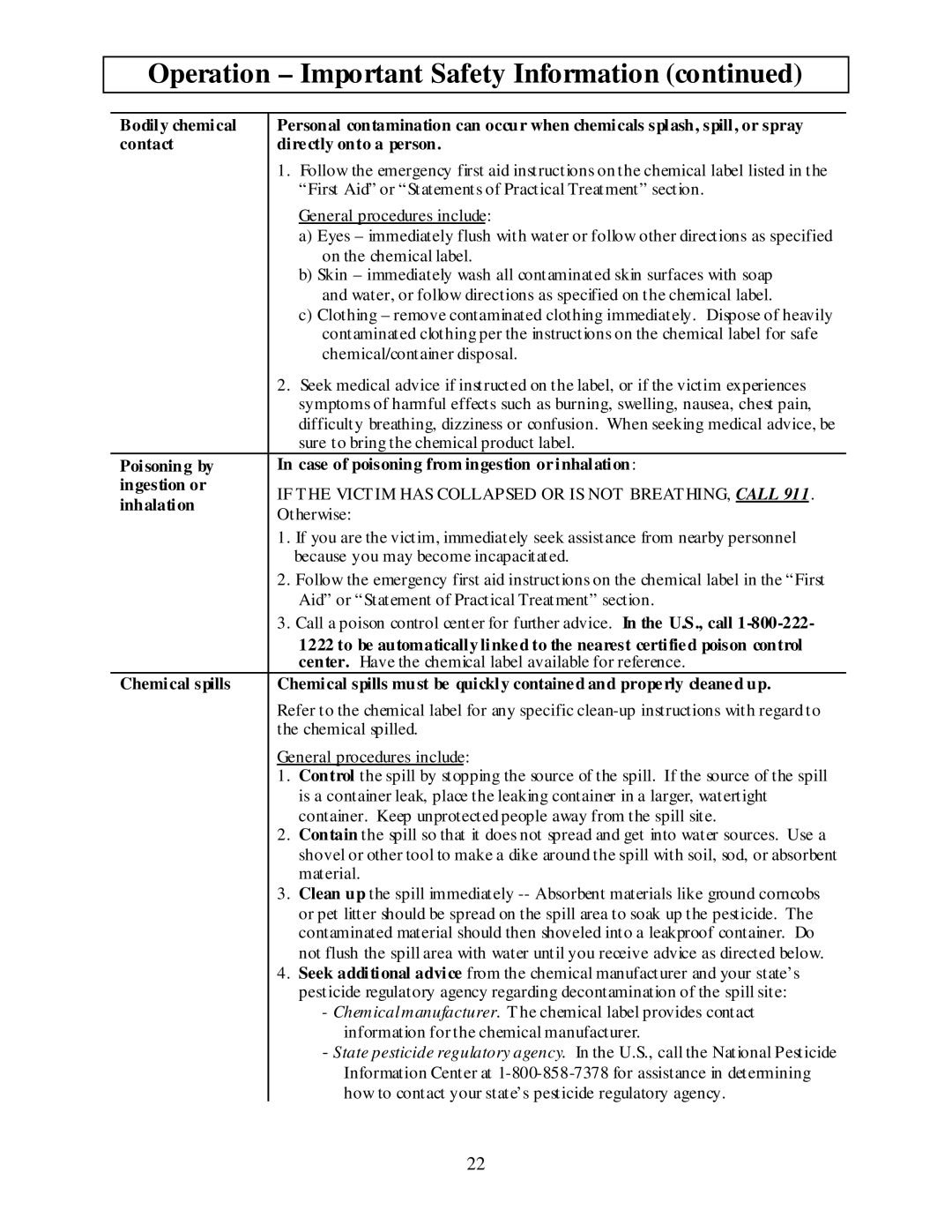
Operation – Important Safety Information (continued)
Bodily chemical | Personal contamination can occur when chemicals splash, spill, or spray | |
contact | directly onto a person. | |
| 1. Follow the emergency first aid instructions on the chemical label listed in the | |
| “First Aid” or “Statements of Practical Treatment” section. | |
| General procedures include: | |
| a) Eyes – immediately flush with water or follow other directions as specified | |
| on the chemical label. | |
| b) Skin – immediately wash all contaminated skin surfaces with soap | |
| and water, or follow directions as specified on the chemical label. | |
| c) Clothing – remove contaminated clothing immediately. Dispose of heavily | |
| contaminated clothing per the instructions on the chemical label for safe | |
| chemical/container disposal. | |
| 2. Seek medical advice if instructed on the label, or if the victim experiences | |
| symptoms of harmful effects such as burning, swelling, nausea, chest pain, | |
| difficulty breathing, dizziness or confusion. When seeking medical advice, be | |
| sure to bring the chemical product label. | |
Poisoning by | In case of poisoning from ingestion orinhalation: | |
ingestion or | IF THE VICTIM HAS COLLAPSED OR IS NOT BREATHING, CALL 911. | |
inhalation | ||
Otherwise: | ||
| ||
| 1. If you are the victim, immediately seek assistance from nearby personnel | |
| because you may become incapacitated. | |
| 2. Follow the emergency first aid instructions on the chemical label in the “First | |
| Aid” or “Statement of Practical Treatment” section. | |
| 3. Call a poison control center for further advice. In the U.S., call | |
| 1222 to be automatically linked to the nearest certified poison control | |
| center. Have the chemical label available for reference. | |
Chemical spills | Chemical spills must be quickly contained and properly cleaned up. | |
| Refer to the chemical label for any specific | |
| the chemical spilled. |
General procedures include:
1.Control the spill by stopping the source of the spill. If the source of the spill is a container leak, place the leaking container in a larger, watertight container. Keep unprotected people away from the spill site.
2.Contain the spill so that it does not spread and get into water sources. Use a shovel or other tool to make a dike around the spill with soil, sod, or absorbent material.
3.Clean up the spill immediately
4.Seek additional advice from the chemical manufacturer and your state’s pesticide regulatory agency regarding decontamination of the spill site:
-Chemicalmanufacturer. The chemical label provides contact information for the chemical manufacturer.
-State pesticide regulatory agency. In the U.S., call the National Pesticide Information Center at
22
